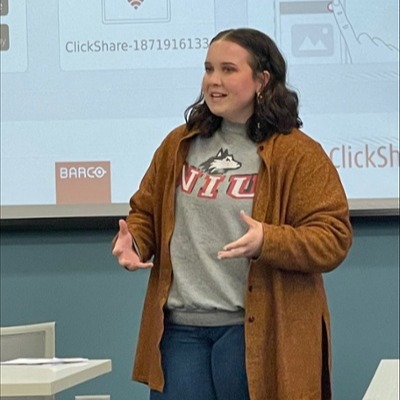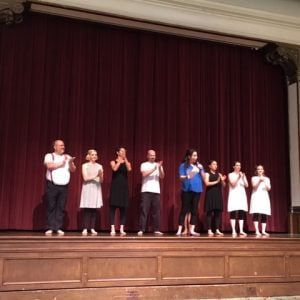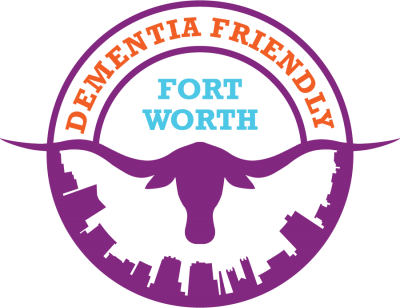The Third Pillar for Aging Services Workforce Development: Cultivating the Next Generation


This is the last of a three-part series devoted to Aging Services Workforce Development.
The first installment focused on "Best Practice to Maintain and Develop the Current Workforce."
The second installment focused on "Non-Traditional Growth and Advancement Pathways."
As the global population ages, the need for dedicated and visionary leaders in aging services becomes increasingly critical. The demographic shift towards an older population presents both challenges and opportunities, making it essential to prepare the next generation for roles in this vital sector.
Educating students to assume leadership positions in aging services is not just about imparting knowledge; it’s about fostering a deep understanding of the unique needs of older adults and equipping future leaders with the skills to effectively address those needs.
Leaders in Aging Services and Institutions of Higher Education play a pivotal role in nurturing the next generation of leaders.
Mentoring
Recognizing emerging talent within an organization is a fulfilling and reward role for a current leader.
-
Skill Development: Through sharing knowledge and experiences, mentors help mentees develop their skills and competencies in specific areas.
-
Networking: Mentors often introduce mentees to valuable contacts and opportunities, expanding their professional or social networks.
-
Role Modeling: By exemplifying professional behavior, ethical standards, and effective practices, mentors serve as role models for their mentees.
-
Personal Growth: While the focus is often on professional development, mentors also support mentees in personal growth and self-awareness.
- Knowledge Transfer: Mentoring allows for the transfer of knowledge and expertise from experienced individuals to those who are newer or less experienced. This ensures that valuable knowledge and best practices are passed down and preserved.
Research from the American Psychological Association (APA) suggests that mentoring can significantly impact career choices and satisfaction. One study found that 30-40% of individuals attributed their career success to having a mentor. This indicates that mentoring plays a substantial role in shaping career trajectories.
Higher Education: Intentional Cultivation and Curriculum
"Many professionals in the field of aging services have a career pathway story that begins with an influential grandparent or older neighbor. These veterans in our field often describe their careers as something they “fell into and never left.” Rare are the stories of those who independently developed a strong interest in aging or a specific desire to serve the older population."
Investing in the education of students for leadership roles in aging services is an investment in the quality of care and support available to older adults. By providing a comprehensive, hands-on, and interdisciplinary education, we can cultivate a new generation of leaders who are not only skilled but also passionate about making a difference in the lives of older adults.
Key Components of Effective Education for Future Leaders
1. Comprehensive Curriculum: A robust curriculum should cover the biological, psychological, and social aspects of aging, as well as management skills and ethical considerations. This holistic approach ensures that students understand both the challenges and the opportunities within the field.
2. Experiential Learning: Practical experience is essential for developing leadership skills. Internships, service learning, and field placements provide students with real-world insights and the opportunity to apply their knowledge in various settings. These experiences help students develop problem-solving skills, learn to manage diverse teams, and understand the intricacies of client care.
3. Leadership Development Programs: Beyond academic knowledge, students need to cultivate leadership qualities such as strategic thinking, communication, and emotional intelligence. Leadership development programs can include workshops, seminars, and mentoring opportunities with experienced professionals in aging services. These programs help students build the confidence and skills necessary to lead effectively.
4. Policy and Advocacy Training: Understanding and influencing policy is a key aspect of leadership in aging services. Training should include an understanding of relevant legislation, advocacy strategies, and the ability to engage with policymakers. This equips students to not only manage services but also to drive systemic change and advocate for the needs of older adults.
5. Cultural Competency: As the aging population becomes increasingly diverse, leaders must be prepared to address a wide range of cultural and socioeconomic backgrounds. Training in cultural competency ensures that future leaders can provide equitable and respectful care and support, tailored to the diverse needs of the aging population.
No longer should higher education rely on students falling into or discovering by accident the career opportunities in Aging Services.
With a bold commitment to nurturing the next generation of Aging Services Leaders, VisionCentre, a not for profit 501(c)(3) was founded by Douglas Olson with a mission to bridge relationships between universities and providers, and build robust, sustainable academic leadership programs that promote and support the field of aging services.
To address industry challenges, we must be aggressive in our recruiting efforts, demonstrating to young people the multiple rewards available to those who choose senior care and services as a profession. Long-term financial stability, upward mobility, and a deep sense of meaningfulness can provide the motivation early leaders and mid-career professionals need to enter the senior care industry.
VisionCentre website
Building a Strong Future
Educational institutions, government bodies, and industry leaders must work together to create programs and opportunities that prepare students for these crucial roles. By doing so, we ensure that the future of aging services is in capable, compassionate hands, ready to meet the challenges and seize the opportunities of an aging world.
As we look to the future, it is clear that the need for effective, empathetic leadership in aging services will only continue to grow. By investing in the education and development of future leaders, we are taking a vital step towards a better, more inclusive future for older adults everywhere.
You are invited to access this Resource Guide that discusses ways to leverage AGE-u-cate Education and Training Programs to create a dynamic experience for students.
Download the Creating a Dynamic Student Experience Guide!



